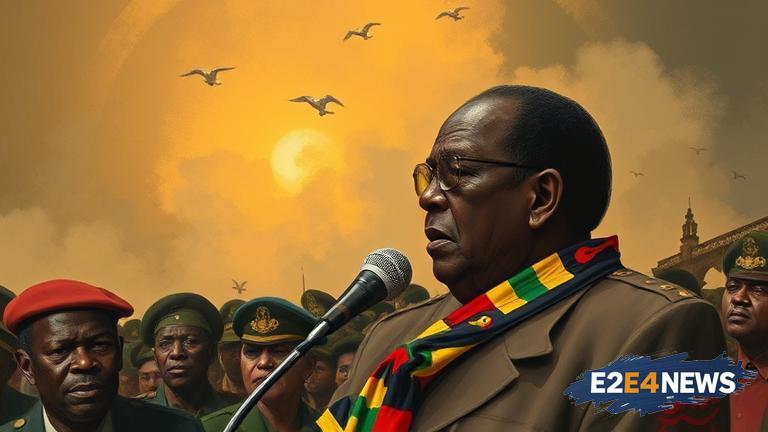Robert Mugabe, the former President of Zimbabwe, was known for his authoritarian rule and intolerant stance towards opposition. His regime was marked by human rights abuses, suppression of dissent, and a general disregard for the rule of law. To understand the making of Mugabe’s intolerance, it is essential to examine his early life, his rise to power, and the events that shaped his presidency. Mugabe was born in 1924 in Kutama, Zimbabwe, and was educated by Catholic missionaries. He later studied law in South Africa and became involved in the country’s liberation movement. After Zimbabwe gained independence in 1980, Mugabe became the country’s first Prime Minister and later President. Initially, his rule was marked by a sense of optimism and hope for the future. However, over time, Mugabe’s regime became increasingly authoritarian, and he began to suppress opposition and dissent. The turning point came in the 1990s, when Mugabe faced opposition from the Movement for Democratic Change (MDC), a new political party that threatened his grip on power. In response, Mugabe’s regime became more repressive, and he used violence and intimidation to silence his opponents. The economy also began to decline, and Zimbabwe faced a severe crisis, including hyperinflation and food shortages. Despite these challenges, Mugabe remained in power, using his control over the military and security forces to maintain his grip on the country. The international community also played a role in enabling Mugabe’s regime, with some countries providing economic and diplomatic support. In 2017, Mugabe was finally ousted in a military coup, bringing an end to his 37-year rule. However, the legacy of his intolerance continues to be felt in Zimbabwe, and the country is still struggling to come to terms with its past. The making of Mugabe’s intolerance is a complex and multifaceted issue, involving a combination of historical, cultural, and economic factors. It is a reminder of the dangers of authoritarianism and the importance of protecting human rights and promoting democratic values. In conclusion, the story of Mugabe’s intolerance serves as a cautionary tale about the risks of unchecked power and the importance of promoting accountability and transparency in government. It also highlights the need for international cooperation and support in promoting democracy and human rights around the world. Furthermore, it is essential to recognize the role of individual agency in shaping the course of history, and the importance of holding leaders accountable for their actions. Ultimately, the making of Mugabe’s intolerance is a reminder of the importance of promoting a culture of tolerance, respect, and inclusivity, and of the need for ongoing efforts to promote democracy, human rights, and the rule of law.
